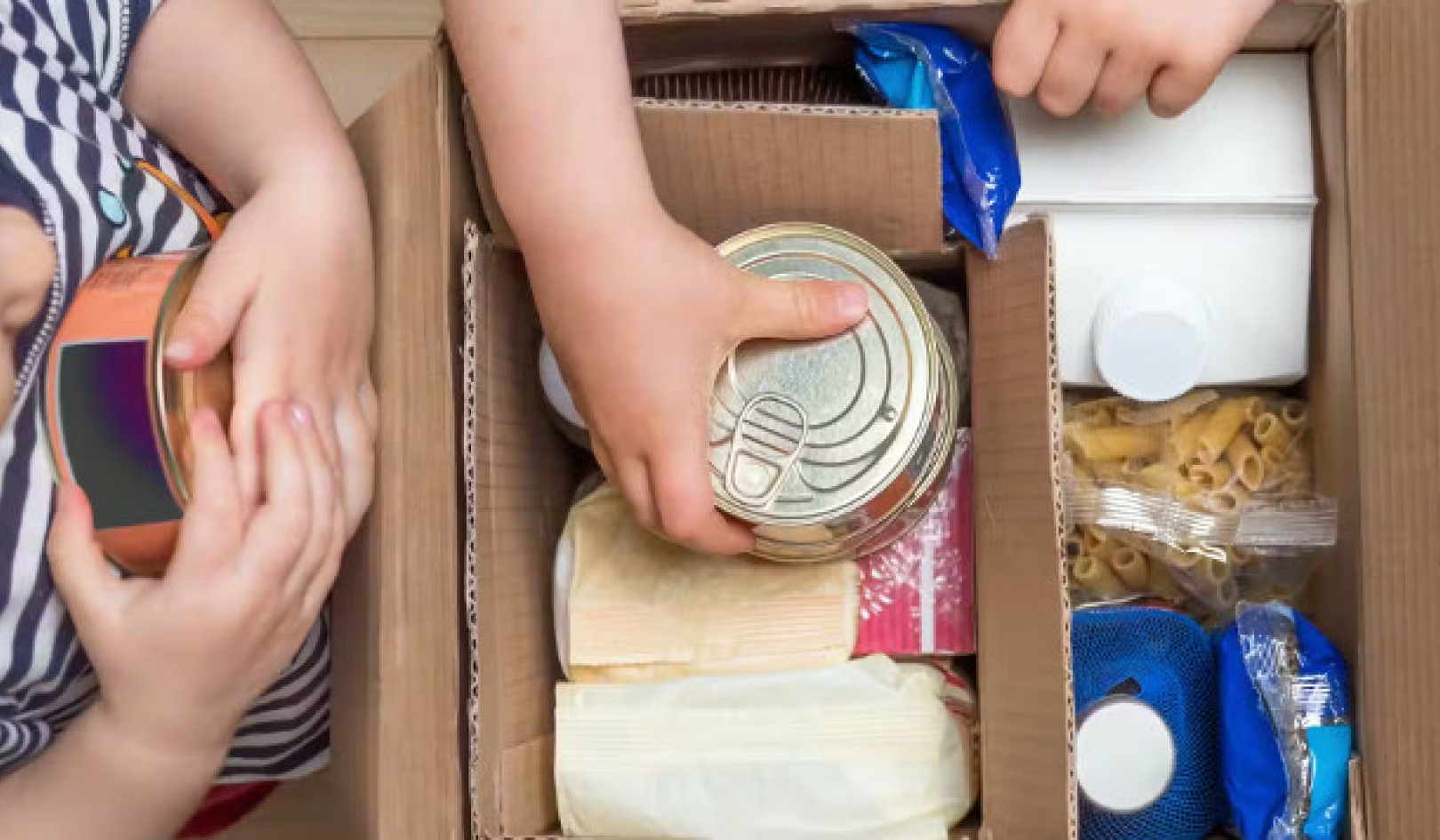 Pick the mindset that makes you better able to respond. Thomas Barwick/DigitalVision via Getty Images
Pick the mindset that makes you better able to respond. Thomas Barwick/DigitalVision via Getty Images
You have a choice to make when it comes to the coronavirus pandemic.
Do you treat this time as an insurmountable threat that pits you against everyone else? This option entails making decisions based solely on protecting yourself and your loved ones: stockpiling supplies regardless of what that leaves for others; continuing to host small gatherings because you’re personally at lower risk; or taking no precautions because the effort seems futile.
Or do you treat the coronavirus as a collective challenge that will require shared sacrifices to achieve a difficult but not impossible goal? That option would mean taking recommended precautions: practicing social distancing, hand-washing and restricting travel. These actions might not be your most desired or convenient path as an individual, but they contribute to the broader social good, reducing the spread of COVID-19.
As a professor of psychology and licensed clinical psychologist who studies how people think differently when they’re anxious, I recognize this global pandemic has all the ingredients to fuel a threat-oriented mindset. The trajectory of the coronavirus is uncertain and unpredictable, the very features that fuel anxiety and threat-processing in the brain.
The way people process threatening events matters a lot for how well they’ll manage this period of uncertainty. Some identification of threat is useful and will mobilize you to action, but a rigid overestimation of threat makes you panic or immobilizes you.
Letting the threat dictate your response
When you perceive a situation as a dire threat, it changes how you process information.
No longer do you consider the pros and cons of your choices evenhandedly, looking at the situation from multiple perspectives. Instead, your attention narrows, selectively focusing on cues that reinforce your sense of danger and vulnerability.
Your interpretations become biased, so that you assume the worst when a situation is ambiguous – as almost all situations are.
And you preferentially remember information that confirms a prior belief that the world is a dangerous place and you don’t measure up.
Why is this a problem? After all, the world really is in the grip of an objectively dangerous pandemic. Paying attention to this threat seems vital for staying safe.
The issue occurs when you believe that your personal resources are insufficient to meet the demands of the situation. If you feel the threat is insurmountable, then you give up. Why try if you’re doomed to fail? And if you feel that your resources – be it food, money, time, energy – are inadequate or threatened, then you have nothing to share with others, and hoard what you can for yourself.
 Tuning in to news 24/7 can be counterproductive. fizkes/iStock via Getty Images Plus
Tuning in to news 24/7 can be counterproductive. fizkes/iStock via Getty Images Plus
Feeling threatened can make you hyperfocused on monitoring for signs of danger, which can in turn mean consuming terrifying stories about COVID-19 almost nonstop. It’s important to stay informed, but prior research makes clear that people are more prone to mental health problems, like anxiety and post-traumatic stress disorder, if they don’t limit media exposure. In turn, reading about COVID-19 all the time increases the perception of threat, further fueling the need to monitor for danger signs in a vicious cycle that makes the world seem ever scarier.
Better to conceive a threat as a challenge
It’s better for your mental health to see this time as a collective challenge – one that is extremely difficult but which can be met if everyone works together.
When you size something up as a challenge, it’s easier to rise to the occasion. Instead of withdrawing from the problem, you shift to problem-solving. People with this mindset draw on others to help, and they offer their own support to those in need. Research has shown that working collaboratively and helping others has great mental health benefits for the helper.
Research on cognitive behavior therapy shows that shifting one’s outlook to perceive something as a motivating challenge rather than an insurmountable threat can be a successful way to treat anxiety disorders.
Cognitive therapy promotes questioning your thoughts instead of assuming the first one that pops into your mind is the most helpful. An individual becomes a scientist, weighing the evidence for and against ideas to reach more balanced conclusions. You become an explorer, thinking flexibly to consider new approaches to solving problems. If you sniffle once, you don’t immediately assume you have COVID-19 – you maintain precautions, but also consider whether this month is when your allergies usually act up and see if allergy medicine works.
It would be ludicrous not to acknowledge the real threats the world faces right now, and the disproportionate impact this difficult time has on already marginalized communities. But you need not define this threat as insurmountable and get stuck there. Choose instead to work together – albeit remotely – and accept the coronavirus challenge. The shift from threat to challenge might just make it a little easier to stay home, to close the browser and stop reading about COVID-19 24/7, to wash your hands for a full 20 seconds and to buy just what you need at the store so others can do the same.
About The Author
Bethany Teachman, Professor of Psychology, University of Virginia
This article is republished from The Conversation under a Creative Commons license. Read the original article.

Books Improving Attitude and Behavior from Amazon's Best Sellers list
"Atomic Habits: An Easy & Proven Way to Build Good Habits & Break Bad Ones"
by James Clear
In this book, James Clear presents a comprehensive guide to building good habits and breaking bad ones. The book includes practical advice and strategies for creating lasting behavior change, based on the latest research in psychology and neuroscience.
Click for more info or to order
"Unf*ck Your Brain: Using Science to Get Over Anxiety, Depression, Anger, Freak-Outs, and Triggers"
by Faith G. Harper, PhD, LPC-S, ACS, ACN
In this book, Dr. Faith Harper offers a guide to understanding and managing common emotional and behavioral issues, including anxiety, depression, and anger. The book includes information on the science behind these issues, as well as practical advice and exercises for coping and healing.
Click for more info or to order
"The Power of Habit: Why We Do What We Do in Life and Business"
by Charles Duhigg
In this book, Charles Duhigg explores the science of habit formation and how habits impact our lives, both personally and professionally. The book includes stories of individuals and organizations who have successfully changed their habits, as well as practical advice for creating lasting behavior change.
Click for more info or to order
"Tiny Habits: The Small Changes That Change Everything"
by BJ Fogg
In this book, BJ Fogg presents a guide to creating lasting behavior change through small, incremental habits. The book includes practical advice and strategies for identifying and implementing tiny habits that can lead to big changes over time.
Click for more info or to order
"The 5 AM Club: Own Your Morning, Elevate Your Life"
by Robin Sharma
In this book, Robin Sharma presents a guide to maximizing your productivity and potential by starting your day early. The book includes practical advice and strategies for creating a morning routine that supports your goals and values, as well as inspiring stories of individuals who have transformed their lives through early rising.
s























